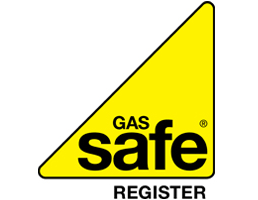How Do Commercial Boilers Work?
Commercial boilers are designed to offer a dependable, efficient supply of heating and hot water for properties where there are many people. This can include office buildings, schools and retail properties. These boilers do the same as the residential varieties but at a much larger scale.
What is a commercial boiler?
Commercial boilers are typically used in buildings other than your own home, such as business properties or public buildings. They are pressurised systems that use fuel or energy to generate hot water or steam.
Components of a commercial boiler
Commercial boilers are made up of largely the same components as regular units; the only difference is the size. However, if you are unfamiliar with them, here is a quick rundown of some of the important parts of a commercial boiler.
◾ Combustion chamber
The combustion chamber is where the fuel is burnt to heat the water in the boiler. This component is designed to offer a very safe environment for high-temperature fuel burning.
Any heavy-duty metal (such as steel or cast iron) that can withstand high temperatures is used to make this part. The combustion chamber should be repaired on a regular basis since it can corrode or fracture over time, making them dangerous.
◾ Heat exchanger
The heat exchanger is part of the boiler that transmits the heat generated by the burners in the combustion chamber to the water.
Heat exchangers can be built out of several materials, but they must be constructed from highly durable material that can endure high temperatures and efficiently transfer heat.
◾ Burner
The burner is the portion of the boiler where air meets the fuel supply and ignites. The combustion gases are subsequently sent via a heat exchanger, which is the boiler.
The amount of combustion air is critical for a clean and efficient combustion; therefore, this is a vital component of your boiler to maintain. Too little air will prevent full combustion, while too much will result in excessive gas loss.
◾ Controls
The user can adjust the water temperature, internal pressure, and ignition using the system controls. The controls decide the temperature of the water, amongst other things.
As well as this, controls are also an important element of your boiler’s safety system. Correctly maintained system controls assist in making your commercial boiler safe by ensuring that internal pressures don’t rise too high and the water stays within a safe temperature range.
What to consider when choosing a commercial boiler
With so many types of commercial boilers to select from, it can be difficult to know which one is right for your company. When choosing one of these appliances, there are several factors to consider. Here are some of the most important:
- Type of fuel – Natural gas and fuel oil, as well as electricity. Hydrotreated vegetable oil is one of them (HVO) if you’re looking for a more environmentally friendly method.
- Maintenance and support – When it comes to commercial boiler repair, you want one you can depend on 24 hours a day, seven days a week, as well as the guarantee of regular maintenance checks. Check the supplier’s maintenance, support, and servicing policies before purchasing an item.
- Energy efficiency – If you want to save money and the environment, you need to consider how energy-efficient your commercial boiler is. Luckily, there are a few energy-saving appliances to select from.
- Size – There are several different sizes available, so know your building and the company’s requirements when choosing a boiler. Take the number of employees/visitors, radiators and overall usage into account.
Don’t worry if you’re not sure what your heating and hot water requirements are. Most manufacturers will be happy to talk about how commercial boilers work and which one would be most suitable for your business. Experienced plumbing specialists will also be able to give some advice on this piece of kit and be involved in the maintenance of it.


